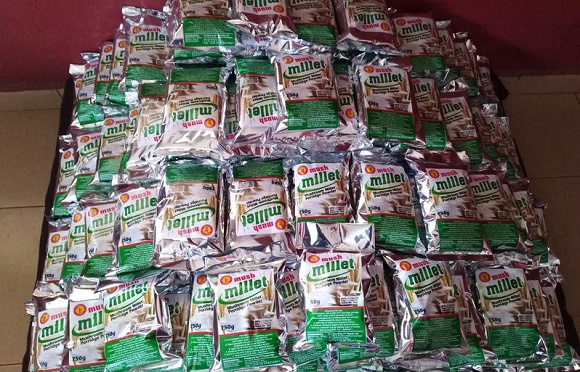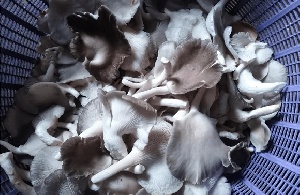Business News of Sunday, 15 July 2018
Source: 3news.com
Mushroom production; a promising venture for the youth
Mushroom is a high nutritional vegetable grown in most parts of Ghana but the economic potentials of large-scale production are yet to be fully tapped.
Though farmers acknowledge the profitability of the venture, the non-availability of ready market and storage facilities scares them to go into large-scale production.
Mushroom is rich in protein, carbohydrate, minerals and vitamins. It is low in fat and an excellent substitute for fish, meat and other high-end protein foods.
Farming the vegetable requires low capital and less space. It can be produced indoors without necessarily owning a large farmland.
Mushroom farmer, Samuel Kwame Gyasi, says the essential raw materials for production are mushroom seeds and treated bags of sawdust.
In three months, you are ready for harvest.
“We mix the sawdust with Oyster shells and keep it for not less than 40 days to decompose. We then bag the sawdust and put the mushroom seed in it for a period of 40 days before it gets ready for harvesting.
Mushroom farming can be done at one’s backyard because one doesn’t necessarily need a big space to do it.
With increasing public awareness on the benefits of consuming mushroom, production is opening up income earning opportunities for young farmers.
Some youth at Adiebeba; a suburb of Kumasi, have picked interest in the venture.
Olivia Anim Tweneboah has been in the mushroom business for over five years.

She is currently training over 50 youth in mushroom production to earn a livelihood.
Olivia says the venture is profitable but could be better if the over 60,000 mushroom farmers across the country could access ready market for their harvest.
“The mushroom business is very good and profitable. All that one needs is a small capital to start but the challenge of the business is access to ready market and storage facility.
“Government has to come in and support the growth of the business since there is a lot of untapped potentials in mushroom,” she pleaded.
The farmers complain the perishable nature of mushroom sometimes discourages them to produce more.
Provision of adequate logistics such as dehydrators for drying fresh mushrooms will come as a relief.
Secretary to the Mushroom Growers and Exporters Association of Ghana, Emmanuel Dabanka Frimpong, wants government’s support to train more youth.
He says the government can capitalize on the venture by establishing a storage facility as part of its one district one factory initiative.
“We aim at creating employment as an association through encouraging our members to expand their farms but the challenge has to do with funds.
“Mushroom is an area the government can look out for in its initiative of one district one factory and capitalize on it,” he advised.
Value addition to mushroom is also important in opening up markets.

An entrepreneur, Stephen Kwesi Asiedu, has established a mushroom processing factory to produce high-end food products.
He is currently producing powdered mushroom bread and mushroom porridge, mixed with millet or rice.
Mr Asiedu has put up structures at Mabang along the Barekese road to house the processing factory but inadequate machinery restricts him from buying more mushroom from the farmers.
He says support from the government will enable the company buy mushrooms in large quantities for processing into other food products.
“The government keeps saying it wants to support the agro processing industry but has not taken advantage of the mushroom sector. I have been buying a lot of mushroom from the farmers but currently my capacity is limited,” he noted.
He added: “I’m ready to partner with the government for the one district one factory policy if I get machinery support and some funds. There is enough space for expansion”.
Encouraging the cultivation of mushrooms on a large scale would offer job opportunities for the youth and help in poverty alleviation.
Government’s support coupled with research and education on the health benefits of mushroom consumption will help see a boom in mushroom production in Ghana.











